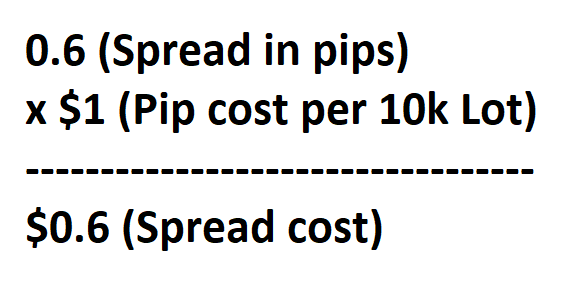Introduction
In the realm of Forex trading, the spread, or the difference between the bid and ask prices, is a crucial factor that directly impacts traders’ profitability. It represents the brokerage’s fee for facilitating currency transactions. But did you know that the strength or weakness of a currency can significantly influence the size of the spread? This article will delve into how the strength or weakness of a currency affects the spread in forex trading.

Image: www.dailyfx.com
Understanding the relationship between currency strength and spread is essential for traders, as it can help them make informed decisions about their trades. A tighter spread means lower transaction costs and potentially higher profits, while a wider spread can eat into profits and make it more challenging to trade profitably.
Currency Strength and Spread
When a currency is considered strong, it commands a higher value relative to other currencies. This strength is typically attributed to a combination of factors, including economic stability, low inflation, positive interest rates, and a positive trade balance. Conversely, a weak currency is one that has depreciated against other currencies, indicating economic weakness, high inflation, or negative interest rates.
The strength or weakness of a currency significantly impacts the size of the spread. For strong currencies, brokers tend to offer tighter spreads because the higher trading volume and liquidity for these currencies allow them to make a profit even with a smaller spread. The high demand for strong currencies creates a competitive environment among brokers, leading to narrower spreads as they compete to attract traders.
On the other hand, weak currencies often come with wider spreads. Brokers compensate for the lower trading volume and liquidity by widening the spread to ensure profitability. The reduced demand for weak currencies means that brokers have less incentive to offer competitive spreads.
Factors Influencing Spread Size
In addition to currency strength, several other factors can influence the size of the spread in forex trading:
- Market Conditions: During periods of high market volatility or liquidity, spreads tend to widen as brokers adjust their prices to manage risk and maintain profitability.
- Trading Pairs: Spreads vary depending on the currency pairs traded. Major currency pairs, such as EUR/USD or USD/JPY, generally have tighter spreads due to their high liquidity.
- Brokerage Fees: Forex brokers charge different fees, including spreads, commissions, and overnight financing. Traders should compare the fee structure of different brokers to find the most competitive spreads.
- Market Makers: Market makers, the entities that provide liquidity by quoting bid and ask prices, also influence spread size. The competition among market makers can lead to narrower spreads.

Image: www.babypips.com
How Does Strength Affect The Size Of Spread In Forex
Conclusion
Understanding how strength affects the size of the spread in forex is essential for every trader. By keeping an eye on currency strength and other factors that influence spread size, traders can make informed decisions about their trading strategies. Tighter spreads can enhance profitability and reduce trading costs, while wider spreads should be carefully considered to ensure profitable trades.
Traders should always conduct thorough research and compare different brokers to find the most competitive spreads for their trading needs. By understanding the relationship between currency strength and spread, traders can optimize their trading strategies and increase their chances of success in the forex market.






